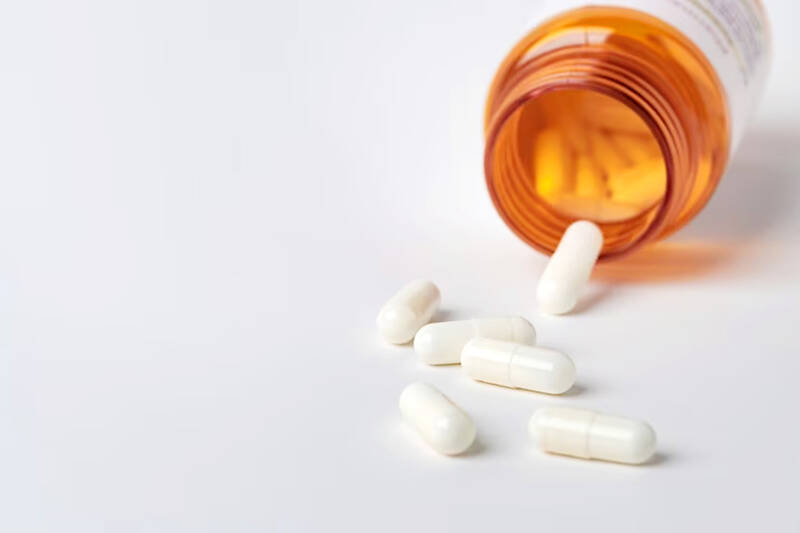An estimated US$2.8 billion in expired medication and unfinished prescription drugs is thrown away each year in the US. While throwing drugs in the trash or down the drain may seem harmless, this is far from the truth. When drugs are flushed down the toilet, they can make their way into water sources. Many water treatment facilities are not equipped to filter out this type of contamination. This can damage both marine and human life.
In addition, leftover medication can end up in the wrong hands. Between 2000 and 2015, US Poison Control Centers received around 30 calls a day regarding children who had accidentally consumed improperly stored or disposed of medicine.
The US Drug Enforcement Administration (DEA) has taken steps to combat mishandled medicine. In 2010, it launched “National Drug Take-Back Day.” This allows people to bring their unwanted pills to specific sites around the US. The main drawback is that these sites are only open once every two years. Fortunately, people may mail unconsumed drugs to the DEA at any time. Drugs that have been returned are then burned.

There is, however, an alternative; rather than destroying the medicine, people can donate it. Certain pharmacies in the US will inspect the medicine to make sure it hasn’t been tampered with and is still safe to use. Then they will give it to patients who are unable to afford it. One program, “SafeNetRx,” has redistributed nearly US$54 million worth of medications and medical supplies. These programs are working hard to counter the harm caused by unused drugs. By keeping pills separate, secure, and throwing them away safely, we can help further reduce their potential dangers.
在美國,據估計每年有美金二十八億元的過期藥物及未用完的處方藥物被丟棄。雖然將藥物扔進垃圾桶或下水道可能看似無害,但事實遠非如此。當藥物被沖下馬桶時,它們會進入水源。許多水處理設施沒有配備能過濾掉此類汙染。這會損害海洋和人類生命。
此外,剩餘的藥物可能最終會落入錯誤的人的手裡。從西元2000年至2015年,美國毒物控制中心每天接到約三十通電話,關於兒童意外食用儲存或處置不當的藥物。
美國緝毒局(DEA)已採取措施打擊處理不當的藥物。西元2010年,它發起了「全國藥物回收日」。這使人們可以將他們不需要的藥丸帶到美國各地的特定據點。主要缺點是這些據點每兩年才開放一次。幸運的是,人們可以隨時將未服用的藥物郵寄給緝毒局。被退回的藥物接下來會被燒毀。
但是,還有另一種選擇;人們可以捐贈,而非銷毀藥物。美國的某些藥局會檢查藥物,以確保它沒有被蓄意毀壞且仍可安全使用。然後他們會把藥交給那些無法負擔的病人。一項名為「SafeNetRx」的計畫已重新分配了價值近美金五千四百萬元的藥物和醫療用品。這些計畫正努力對抗未使用的藥物造成的危害。透過使藥丸分開、安全地保存並安全丟棄,我們可以進一步幫助減少它們的潛在危險。
MORE INFORMATION
disposal n. 拋棄;處理
leftover adj. 剩餘的;留下的
dispose of 處理;清除
mishandle vt. 處理不當
drawback n. 缺點;劣勢
pharmacy n. 藥局
tamper with 蓄意破壞;擅自更動
KEY VOCABULARY
1. expire v. 到期;死亡 ╱ expired adj. 過期的;超時的
That bottle of milk expired a few days ago, so it probably isn’t safe to drink.
那瓶牛奶幾天前就已經到期,所以現在喝可能不太安全。
2. medication n. 藥物;藥劑
The man’s disease is under control thanks to the medication he takes once a day.
多虧了他每天服用一次的藥物,這名男子的病情得到控制。
3. prescription n. 處方(藥)
After visiting the doctor, Paula took her prescription to the counter to get her medicine.
看完醫生後,寶拉拿著她的處方到櫃檯領藥。
4. facilities n.(pl.)設施;設備
My new school has great sports facilities; it even has a swimming pool and a gym!
我的新學校有很棒的體育設備;它甚至有一座游泳池和一間健身房!
5. equip vt. 配備;裝備;使有能力
In another few years, most new cars will be equipped with an autopilot function.
再過幾年,大多新車將會配有自動駕駛功能。
6. contamination n. 汙染;弄髒
Please wash your hands after touching raw meat to avoid contamination.
碰觸生肉後請洗手,以避免汙染。
7. combat vt. 打擊;制止;戰鬥
The school is looking into new ways to combat bullying on campus.
這所學校正在研究新方法來打擊校園霸凌。
8. donate v. 捐贈;捐助
Last year, Sally donated a lot of money to her local hospital.
去年莎莉捐了很多錢給她當地的醫院。
9. secure adj. 安全的;牢固的
There are no locks on your windows, so your house is not secure.
你的窗戶上沒有鎖,所以房屋不安全。
學習音檔: https://magazine.english4u.net/Magdata/menu/lkmpb
《空中美語》雜誌APP免費下載: https://www.english4u.net/apps/index.aspx
免費收聽當月《空中美語》雜誌課文朗讀及解析 !
文章由AMC空中美語授權使用: https://www.english4u.net